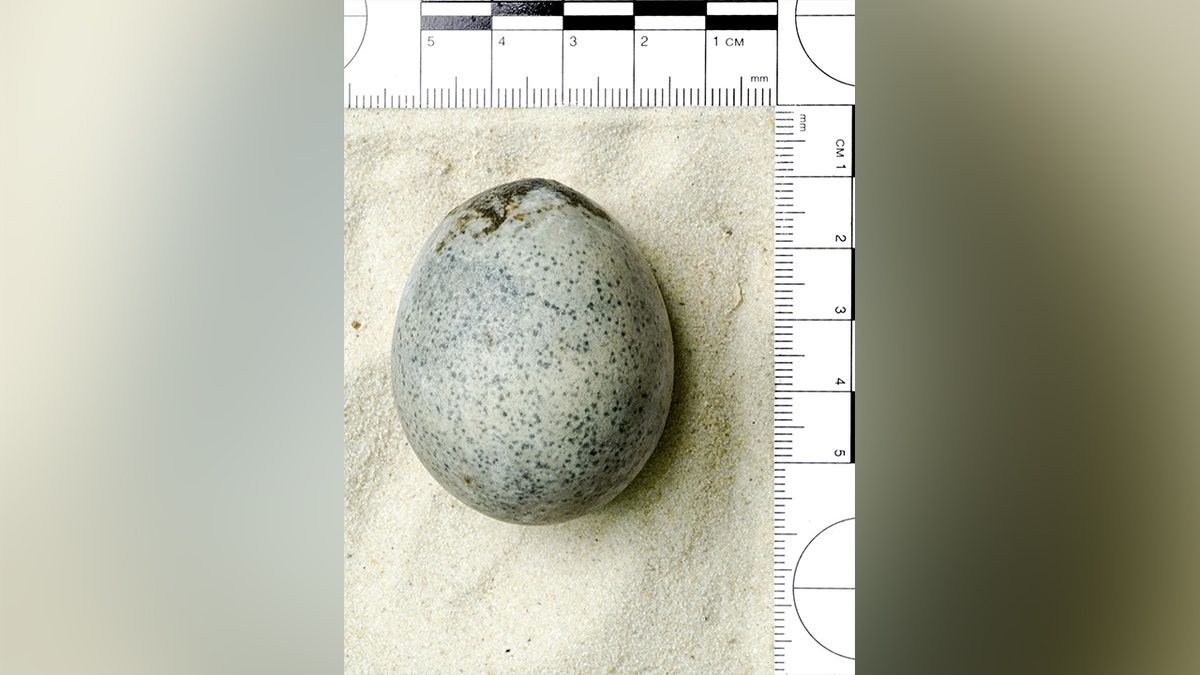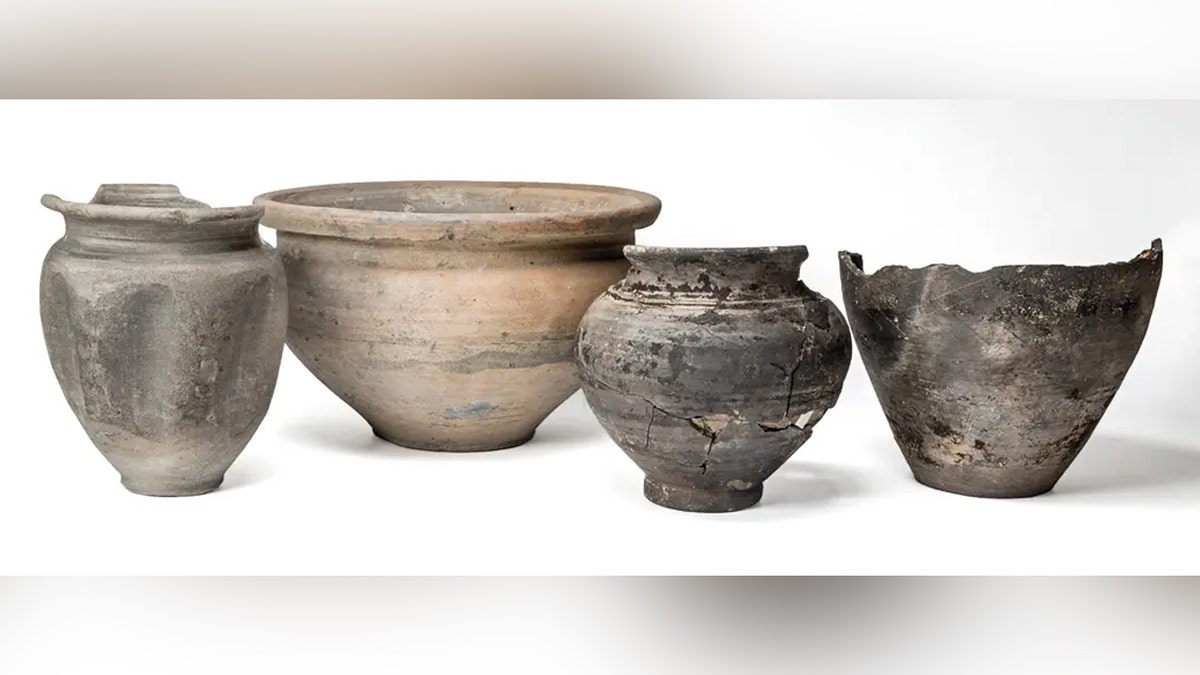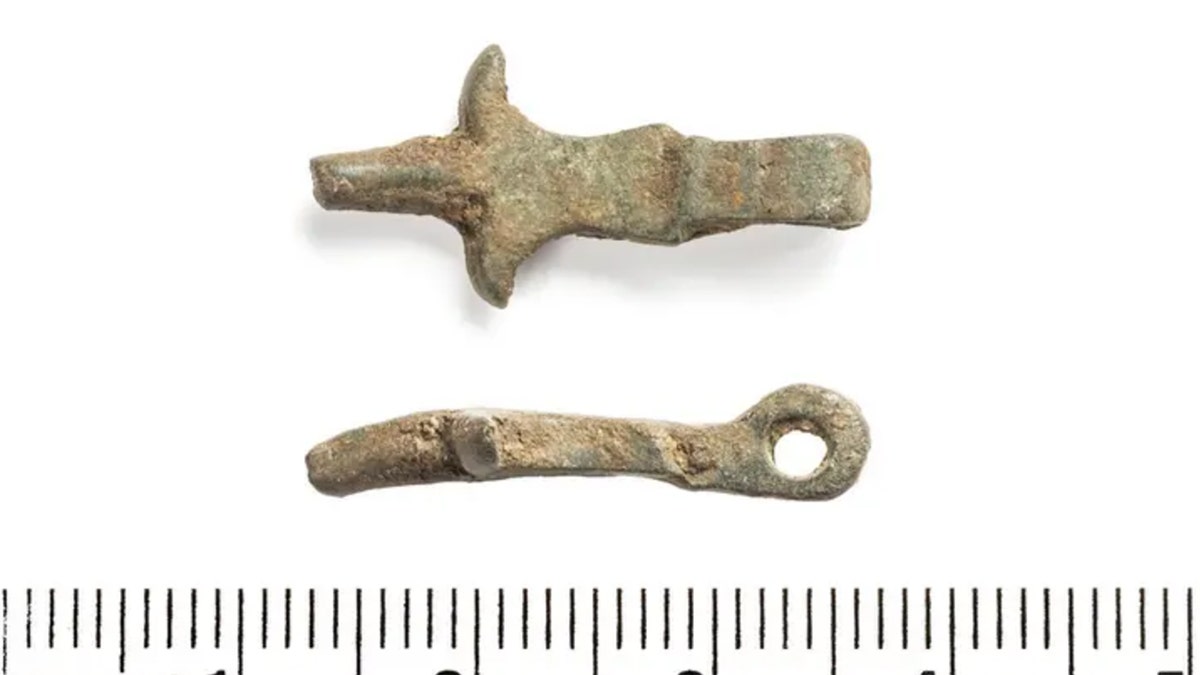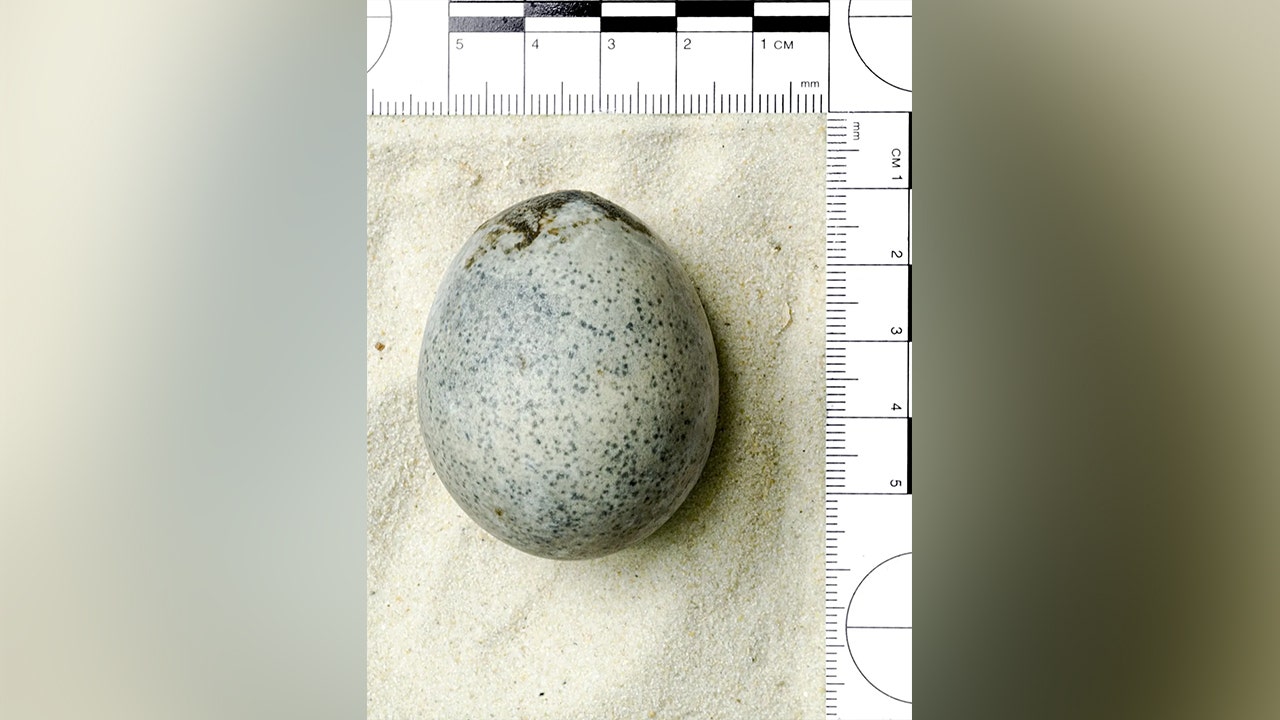Archaeologists in the U.K. were shocked to learn that a 1,700-year-old Ancient Roman egg discovered in Aylesbury, Buckinghamshire still had a yolk inside, according to reports.
The discovery of the egg was announced in December 2019, after archaeologists with Oxford Archaeology completed a dig in Aylesbury between 2007 and 2016.
The experts found a basket containing four eggs in a waterlogged pit, which they believe may have been used as a “wishing well.” However, when the eggs were removed from the environment, three of the eggs broke, and they let off what was described as a “potent stench.”
The remaining egg survived, and according to the BBC, it underwent a micro-CT scan that revealed what was inside.
WRECK OF MERCHANT SHIP THAT SANK IN 1940 FOUND IN LAKE SUPERIOR

This egg was cast into a watery pit, possibly as part of a Roman funeral rite. (SWNS)
Oxford Archaeology senior project manager Edward Biddulph oversaw the excavation and described to the media outlet that it was “amazing” to find the only intact egg from the period in Britain, but “absolutely incredible” that the egg still had its original contents.
“We were absolutely blown away when we saw the contents in there, as we might have expected them to have leeched out,” he said.
The dig took place before the development of housing at Berryfields in Aylesbury, and along with the eggs, archaeologists found dozens of coins, shoes, wooden tools and what was described as a “very rare” basket.
Biddulph said at the time of the announcement that the “wishing well” may have operated similar to modern-day wishing wells.
HIKER IN ISRAEL DISCOVERS ANCIENT SCARAB DATING BACK NEARLY 2,800 YEARS

The remains of a Roman mirror and pots were also discovered. (SWNS)
“Passersby would have perhaps stopped to throw in offerings to make a wish for the gods of the underworld to fulfill,” Biddulph noted, adding that the eggs are a rare find. “The Romans associated eggs with rebirth and fertility, for obvious reasons. We have found chicken bones and broken eggshells in Roman graves in Britain before, but never a complete egg.”
The archeology firm did not immediately respond to inquiries from Fox News Digital regarding the latest discovery involving the egg.
The BBC reported that conservator Dana Goodburn-Brown, who has conducted additional work with the egg, took it to the University of Kent for analysis.
ARCHAEOLOGISTS DISCOVERED 1,700-YEAR-OLD ROMAN EGGS AND ACCIDENTALLY RELEASE ‘WORLD’S OLDEST STINKBOMBS’

A belt buckle and a fragment of a horse harness were found, as well as evidence of a wooden bridge over the Thames. (SWNS)
“It produced an amazing image that indicated that the egg, apart from being intact – which is incredible enough – also retained its liquid inside, presumably deriving from the yolk, albumen etc.,” Mr. Biddulph said.
The egg has also traveled to London’s Natural History Museum, where the extraction of the egg’s contents without destroying the egg was discussed.
Having traveled several places, now, the egg is located in Aylesbury at the Discover Bucks Museum, as experts continue to determine how to get the contents of the egg without cracking the shell.
CLICK HERE TO GET THE FOX NEWS APP
“It’s a bit like blowing an egg – but obviously a much finer process,” Mr. Biddulph told the BBC.
“There is huge potential for further scientific research, and this is the next stage in the life of this remarkable egg.”






